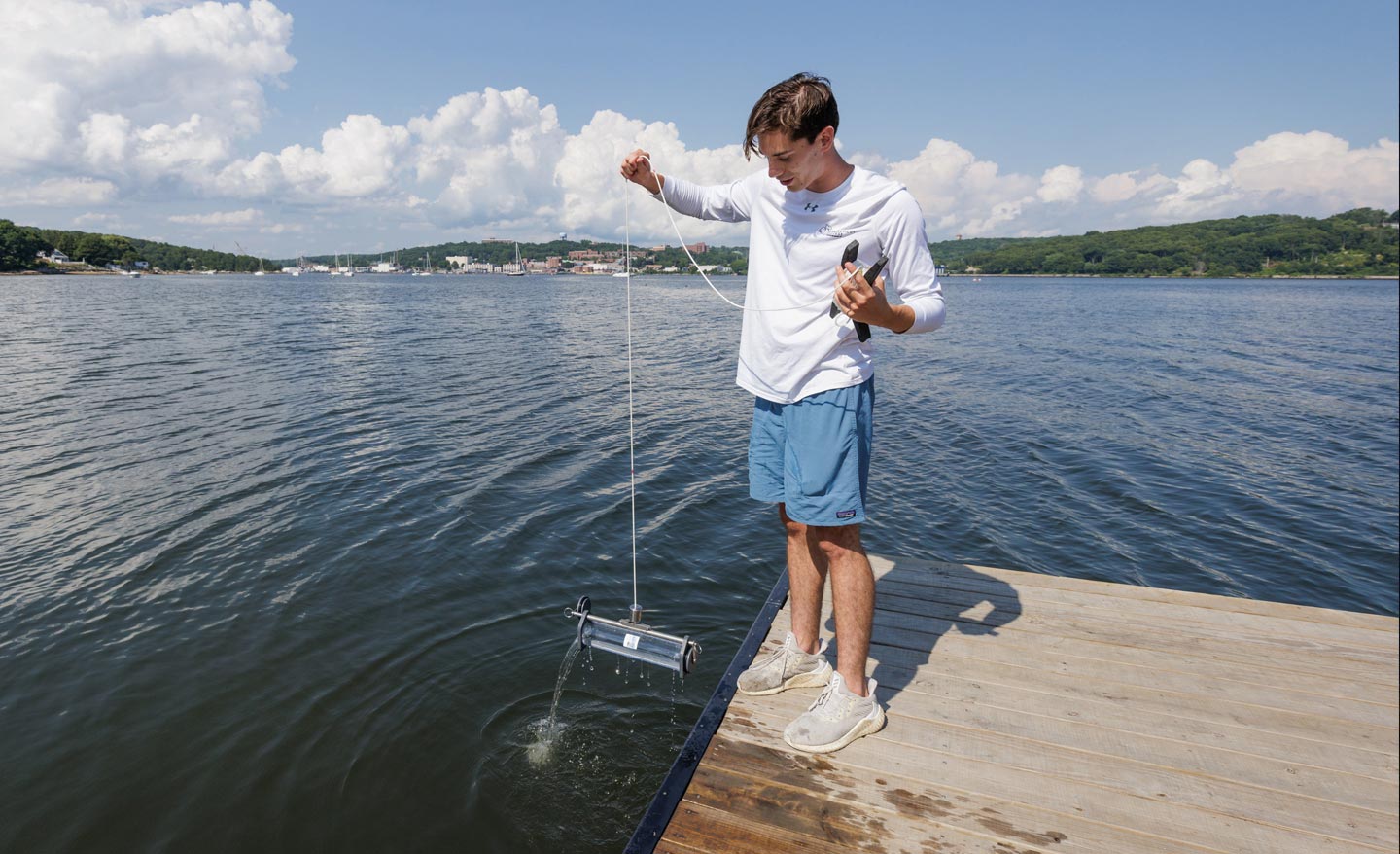Summer of Science
More than 50 students worked alongside 20 faculty members this summer as part of Conn’s Summer Science Research Institute.
Jane Rusher ’24 wants to know what’s in your soil.
For eight weeks this summer, Rusher, a biology major, biked around New London in search of plant and soil samples from urban and suburban areas. Working alongside Eric Vukicevich, the Sue and Eugene Mercy, Jr. Assistant Professor of Botany at Conn, Rusher analyzed 98 plant and soil samples to test for various elements, including nutrients and harmful heavy metals.
The goal of the research was twofold: first, to determine the element concentrations that people may be ingesting when they forage for food in the area, and second, to determine how soil’s unique characteristics can impact different plant species.
“My favorite part of the research was developing a more holistic geographical knowledge of the town as I spent time biking from place to place to take my samples, and experiencing a sense of community in New London through some of the residents I talked to about my work,” she said.
Rusher is one of more than 50 students who worked alongside 20 faculty members this summer as part of Conn’s Summer Science Research Institute, an intensive eight-week residential program that includes a $4,000 stipend and the opportunity for students to work directly with faculty on scientific research. Participants provide regular updates to their fellow researchers through weekly colloquia, and the experience culminates in the fall with a poster symposium open to the entire College community.
Rusher said her experience has led her to consider working in a lab or conducting field research after graduation. “It’s satisfying to work toward figuring something out, getting to see the results and then seeing what they tell you about the next steps to solving a problem.”
For Madelyn Rose ’25, the institute provided an opportunity to work alongside fellow student researchers and Assistant Professor of Biology Mays Imad on a pilot study examining biofeedback training, a noninvasive therapy that teaches people to change the way their bodies function. Their research examined the impact of biofeedback on stress and emotional regulation.
“As a biochemistry, cellular and molecular biology major, many of my classes surround chemical lab work,” Rose said. “However, my research over the summer allowed me to assume a more interpersonal approach to research.”
Many students continue their summer work well into the fall and spring semesters. For some, the experience inspires new career paths, like it did for Mitchell Lockwood ’23, a biology major who worked alongside George & Carol Milne Assistant Professor of Biology Maria Rosa to construct 3-D printed biodegradable artificial aquatic habitats that could be instrumental in saving the ocean’s coral reefs.
“It’s so amazing and fulfilling to know that your work will one day help so many different areas of the world,” Lockwood said. “For a young researcher, it helps light that fire under you to keep working harder so that you can one day be the person teaching students to feel the same way.”
